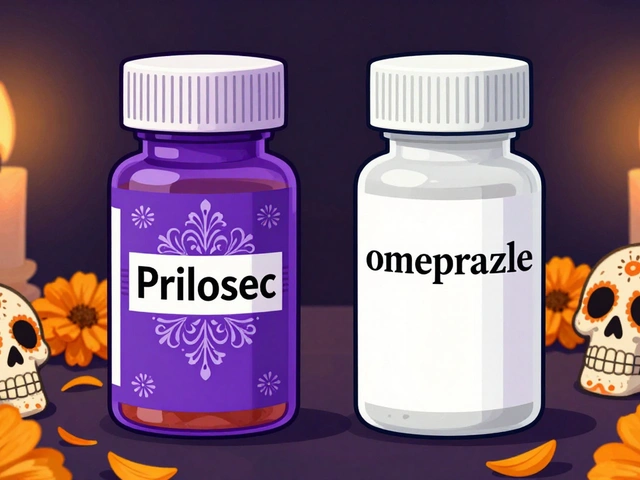Most folks never hear the name Lariam until the words “malaria” and “travel” pop up together in a conversation. Suddenly, this little pill is the gatekeeper standing between you and a swath of mosquito-infested destinations. But not everyone tells you what you’re really getting into with this drug. Let’s just say it’s had more plot twists than a season of your favorite Netflix drama. Soldiers, backpackers, and even aid workers have all got stories to tell—some feel lucky, others not so much. So what’s the truth behind Lariam’s reputation? Dig in and find out.
What Exactly is Lariam?
Lariam isn’t some obscure health supplement hanging out in the vitamin aisle. Known generically as mefloquine, it’s a prescription medication designed specifically to prevent and treat malaria—one of the world’s deadliest parasites. The origin story? Swiss chemists at Hoffman-La Roche cooked it up in the late 1970s, mostly because malaria was turning dangerous parts of the globe into no-go zones. The U.S. military fast-tracked its field testing: by the ‘80s, soldiers stationed in Southeast Asia and Africa were handed small white tablets labeled Lariam for weekly use.
Malaria’s the real threat here—it kills hundreds of thousands each year, mostly kids in sub-Saharan Africa. You can see why a global push for a good prophylactic was urgent. Mefloquine’s ability to knock out the parasite in its liver stage made it a genuine game-changer. Suddenly, an extra week of travel in Cambodia didn’t have to mean a dice roll with fever, chills, and night sweats. Lariam’s dosing set it apart: rather than popping a pill daily, you only need one a week. That’s a blessing for forgetful folks or people who hate swallowing pills. But there’s a “but.”
As time rolled on, stories about the side effects started bubbling up. With each retelling, Lariam’s reputation got a little shakier. Some travelers swear by how easy and effective it is. Others say they’d never touch it again. So which is it—savior or snake oil? The answer, as you might guess, isn’t cut and dry.
How Lariam Stops Malaria—and When It’s Used
Let’s talk science for a second. Malaria is caused by a tiny parasite, plasmodium, riding along in a mosquito’s saliva. When these bloodsuckers bite, the parasite heads straight for your liver, sets up camp, and then makes a run for your bloodstream. Lariam (mefloquine) steps in by disrupting the parasite’s ability to multiply and survive inside red blood cells—a job that requires precise chemistry. It doesn’t kill the mosquito, just ruins the parasite’s party in your body.
Lariam is most often prescribed to people traveling to places where malaria is drug-resistant—think certain parts of Africa, Asia, or South America. It’s also approved for treating malaria in people who've already caught it, but that’s less common since there are more targeted treatments for that purpose.
The dosage is dead simple for travelers: one tablet a week, starting a week before you enter the risk zone, and continuing until four weeks after you leave. Sounds hassle-free, right? It kind of is—until you need to consider drug resistance charts or changes in regional recommendations. Health agencies like the CDC, WHO, and Canada’s own travel advisory sites constantly update which drugs are recommended for different areas. In some regions, Lariam’s a first pick. In others, it falls off the list.
So if you’re headed on that Amazon trek or Southeast Asia backpacking trip, the clinic staff might hand you a map dotted with red zones and a pill organizer. They may still recommend Lariam—unless your mental health history or planned travel dates raise red flags. Here’s why that matters.
Lariam Side Effects: What You Actually Need to Know
People love to chat about drug side effects, but with Lariam, rumor and fact get tangled. For most, there’s some mild stomach upset, maybe weird dreams or a hint of dizziness. But for a small group, the story changes: headaches that don’t quit, panic attacks, hallucinations, sudden depression, or even aggressive behavior.
This isn’t just hearsay. Back in the early 2000s, military studies and travel health journals started piling up stories from those who developed lasting psychiatric symptoms after taking the drug. The U.S. Food and Drug Administration even ordered stronger warnings for the packaging, reminding everyone that in rare cases, these side effects can persist long after stopping the medicine. Canada followed suit—doctors here must screen for mental health history before writing a Lariam script.
Here’s what shakes out of the numbers. In published studies (like a big cohort tracked among U.S. Peace Corps volunteers), around 1 in 13 people reported mild psychiatric effects (think vivid dreams). But for severe symptoms like paranoia, hallucinations, or major depression, the risk hovers closer to 1 in 10,000. Not huge if you’re betting, but not zero—and if you wind up in that group, the odds don’t matter much.
It’s not just headspace. Lariam can trigger nausea, diarrhea, or even ringing in the ears. But here’s a weird pattern: side effects sometimes hit hardest not at first, but after several doses. That means a pre-trip test week isn’t foolproof—in rare cases, problems show up after you’ve already landed abroad. That's why they say keep tabs on how you feel each week, not just at the start.
Pregnant? Lariam isn’t usually first line, but in some settings, it may be considered safer than getting malaria itself. Always check with a travel doc before heading anywhere risky while expecting. For kids, it’s approved down to five kilograms (about 11 pounds), which is not something you'd expect for a potent medication.

Comparing Lariam to Other Antimalarial Options
Lariam isn’t the only show in town. Today’s travel clinics offer a menu of choices, all with pros and cons. Doxycycline’s an old favorite: cheap, reliable, but daily dosing and sun-sensitivity can cramp your style (especially if you forget a day or love the outdoors). Then there’s Malarone (atovaquone-proguanil): daily pill, mildest side effects for most, but it costs more and you need to keep taking it for a whole week after travel (compared to Lariam’s four).
Here’s a comparison of Lariam with other common antimalarials:
| Drug Name | Dosing | Common Side Effects | Major Warnings | Approx. Cost (CAD/Week) |
|---|---|---|---|---|
| Lariam (mefloquine) | Once weekly | Vivid dreams, nausea, dizziness | Psychiatric effects, shouldn’t use with mental health history | $5-7 |
| Doxycycline | Daily | Photosensitivity, GI upset | Not for pregnant women or children under 8 | $1-2 |
| Malarone (atovaquone-proguanil) | Daily | Mild GI upset | Not for severe kidney disease | $6-10 |
So how do you choose? If you have a history of anxiety, depression, or seizures—steer clear of Lariam. If you’re terrible at remembering daily pills, it might make sense. Budget matters too, as Malarone can get pricy for long trips. Most clinics in Canada these days lean towards Malarone or doxycycline as their go-to, but for travelers heading to areas with resistant malaria, Lariam can still be a legit, affordable option.
Smart Tips for Taking Lariam Safely
If you’ve decided—or your doctor suggests—you’re a good candidate for Lariam, there are a few tricks to minimize the hassle. First, start the medication at least a week before your trip. That gives you a chance to spot any side effects where help’s close at hand. Never crush or split the tablets—just swallow whole, with food and lots of water. Set a weekly phone alarm for your dose: it’s surprisingly easy to lose track when you’re far from home. If you vomit within an hour of taking the pill, repeat the dose as soon as possible (ask your doctor if you’re not sure what to do).
If you notice anything off—vivid nightmares that won’t quit, sudden mood swings, trouble with balance, or just feeling “not yourself”—call your doc. Don’t shrug it off. Stopping early is better than waiting for things to spiral. Keep in mind: Lariam sticks around in your body for weeks, so some symptoms can linger even after your last pill. That doesn’t mean everyone will have issues; it just means be proactive.
Travel clinics in Canada often recommend writing down your weekly doses and keeping a list of any changes in mood or behavior, especially if traveling solo. If you have a travel companion, ask them to help watch for changes you might not spot in yourself. If things go sideways in a remote area, you want someone else who can advocate for you.
Lariam plays no part in repelling mosquitos—that’s a common myth. You still need permethrin-treated clothing, high-DEET repellent, and a bed net for sleeping. The pill’s just your last line of defense. And if you come down with fever or chills after return, tell your healthcare provider about your trip history and antimalarial use, since no medication gives 100% protection.
Is Lariam Right for You? Making the Call
This isn’t a one-size-fits-all decision. If you don’t have any mental health conditions, and you’re looking for a once-weekly med with years of field data, Lariam can be a solid pick—if you watch for side effects. But if you’ve ever had anxiety, depression, psychiatric illness, or seizures, ask your doctor about alternatives. Most clinics have a strong preference for other antimalarials now, especially for long stays, adventure travel, or if you’re living in-country for work.
Public trust in Lariam has taken hits over the years. There were several high-profile incidents involving military personnel who developed psychiatric symptoms, plus lawsuits and national reviews. Most experts agree: the risk is low for the average traveler, but much more concerning if you have personal or family history of psychiatric conditions. It doesn’t mean the stories are myths—it just means each case is its own story.
If you weigh the risks, stay alert to new symptoms, and have a plan for what to do if things go wrong, you’ll put yourself in the best position. Always check the latest health advisories for your destination—they change every year based on resistance patterns and regional outbreaks. And don’t skip those dull “package inserts,” either. They’re worth a read on the plane.
Calgary isn’t a malaria hotspot, but drop by any travel clinic in the city and you’ll hear staff debate pros and cons of Lariam every week. Ask them about their own experiences—they’ve got stories almost as wild as those from travelers coming home. The bottom line? Whatever pill you take, nothing replaces vigilance and basic mosquito defense. If Lariam is on your list, just go in with eyes open, weigh your options, and don’t hesitate to speak up at the first sign of trouble.












